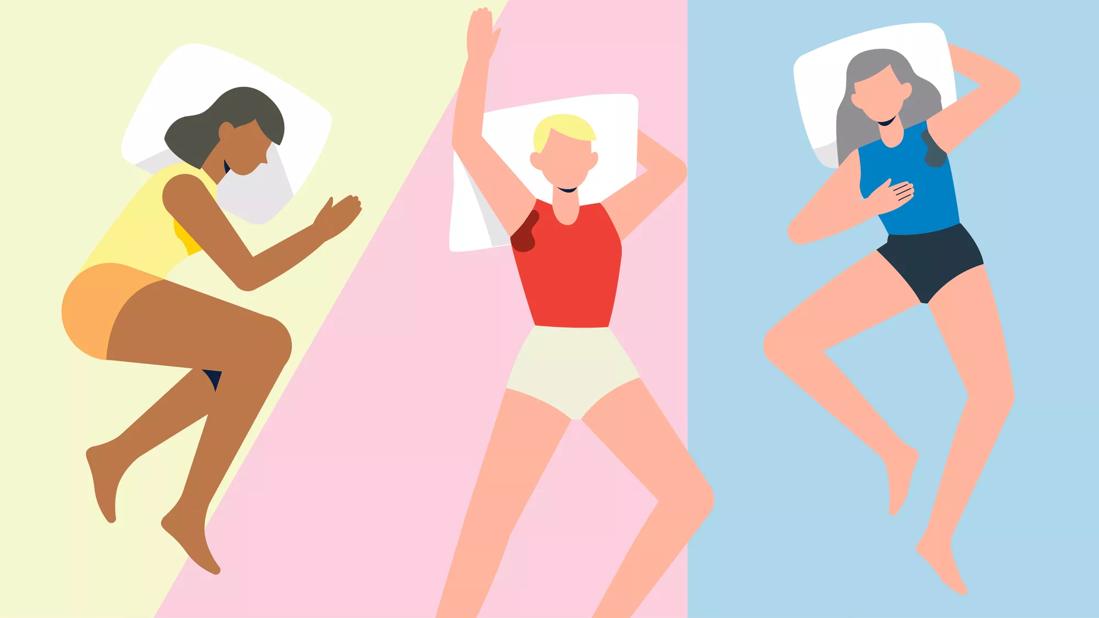Hormone therapy, medication and lifestyle changes and can help you get the restful ZZZs you need

Image content: This image is available to view online.
View image online (https://assets.clevelandclinic.org/transform/5674c4bc-19be-4076-b2eb-b0dd0d7c78e1/Hot-Flashes-During-Night-1493182518-967x544)
Three different women in sleeping positions sweating
You wake up in a pool of sweat, feeling like the heat somehow got cranked up to 100 degrees. Alas, the problem isn’t the furnace but your internal thermostat.
Advertisement
Cleveland Clinic is a non-profit academic medical center. Advertising on our site helps support our mission. We do not endorse non-Cleveland Clinic products or services. Policy
Surely you’re too young for hot flashes, right? Right?! Maybe not.
It's most common to start having symptoms of perimenopause in your 40s. Those symptoms include irregular periods, vaginal dryness and, yes, hot flashes. As many as 3 in 4 people will have hot flashes in the years leading up to menopause.
Women’s health specialist Pelin Batur, MD, shares tips for surviving these nocturnal trips to the tropics.
Scientists don’t know the exact reasoning behind flashes and night sweats, known as vasomotor symptoms, but they’re likely related to changes in hormone levels. When you enter menopause, your body starts producing less estrogen, a hormone that’s secreted by your ovaries and regulates your menstrual cycle.
But what is clear is that hot flashes can be really, really unpleasant. You might feel like you’ve been swallowed by a heatwave, and you may sweat, turn red and feel your heart race. And while they’re an unwelcome experience any time of day, hot flashes can be especially troubling at night, when they mess with your sleep.
From a medical perspective, hot flashes aren’t necessarily worse at night — but they can feel like it, especially when they cause you to wake up drenched in sweat.
Advertisement
Hot flashes typically last only a few minutes, and they can also be followed by a bout of chills. By the time the whole ordeal is over, you may be wide awake and uncomfortable, not to mention soaking wet and kinda grossed out.
“If you’re not getting a good night’s sleep because of night sweats, then they become more than just a nuisance,” Dr. Batur says. “Really, it’s a quality-of-life issue.”
Menopause-related vasomotor symptoms aren’t dangerous. But if they’re interfering with your sleep or otherwise making you miserable, help is available.
“I think of it as a three-pronged approach: natural approaches, nonhormonal medicine approaches and hormonal approaches,” Dr. Batur says. She shares these tricks and tips to keep night sweats to a minimum.
Certain foods or environmental triggers can spark night sweats.
“Some people report that increased intake of sugar, stress and caffeine may be contributors,” Dr. Batur notes. Other common triggers include:
Spend a few days tracking your hot flashes and what you did in the hours leading up to them. You might find that a eating spicy dinner or wearing flannel pajamas to bed is a recipe for night sweats.
Easier said than done, sure, but reducing your stress levels and practicing overall mindfulness can do wonders for your health in general — and it may lessen hot flashes, too. One study suggests that feeling anxious may be a good predictor of an incoming hot flash.
“The data for all of this is weak, but certainly, it makes sense to try to minimize your stress, practice mindfulness and do some deep breathing,” Dr. Batur notes.
Take steps to turn your bedroom into a sweat-free sanctuary so night sweats can’t get the best of you while you sleep.
If nighttime hot flashes are keeping you from sleep, your doctor can help. Their course of action will depend on your health conditions and concerns.
The U.S. Food and Drug Administration (FDA) has two nonhormonal prescription medications specifically to treat vasomotor symptoms. Veozah™ (fezolinetant) is an oral medication that can help with moderate to severe hot flashes and night sweats due to menopause, while Brisdelle (paroxetine mesylate), an ultra-low dose of an old-fashioned antidepressant, is also specifically approved to treat hot flashes.
Advertisement
Other options may include:
You can experience hot flashes for months or even years. But if they’re getting in the way of your life, it’s time to seek treatment.
Plus, not all hot flashes are from menopause.
“They can also be related to thyroid disorders and other conditions or medications, so it’s especially important to get evaluated by your doctor,” Dr. Batur emphasizes.
They’ll work with you to determine the root cause and a course of action to improve your health and help you sleep through the night.
Advertisement

Sign up for our Health Essentials emails for expert guidance on nutrition, fitness, sleep, skin care and more.
Learn more about our editorial process.
Advertisement
Estrogen loss contributes to bone loss, which significantly raises your risk of osteopenia and osteoporosis
Making certain changes to your diet, sleep habits and even your wardrobe may help lessen the impact of menopause symptoms
A women’s health specialist explains those cold flashes that come on quickly
Changing hormone levels can bring issues like brittle nails, indigestion, dry skin and new allergies (to name a few!)
The choices you make at mealtime could reduce hot flashes or make them worse
If you’ve noticed changes in your mood and mental health while going through menopause, you’re not alone
Missed periods, heavy periods, painful sex and frequent hot flashes are just a few symptoms worth discussing with your provider
At-home tests measure FSH levels in urine, but they can’t actually diagnose menopause
Although it could be used as a moisturizer, this new trend is not recommended
Communicating clear limits helps protect your time, energy and emotional well-being
High cholesterol can be genetic, but testing and treatment can lower your heart disease risk